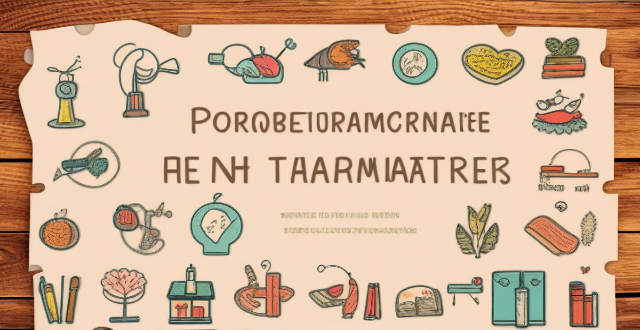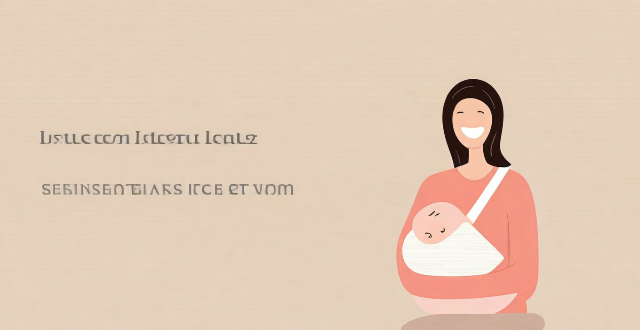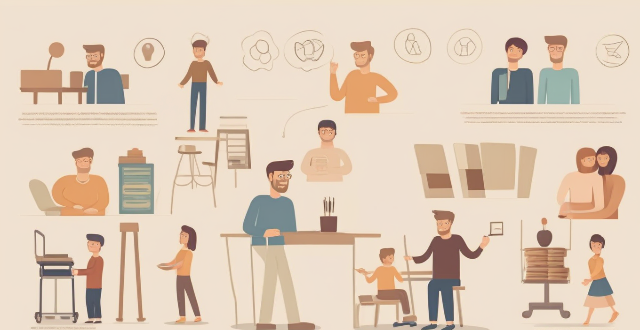Baby Parent

What are the benefits and risks of co-sleeping with your baby ?
Co-sleeping with your baby can promote bonding, ease breastfeeding, regulate sleep, reduce SIDS risk, and encourage restful sleep for parents. However, it also carries risks such as increased SIDS risk in unsafe conditions, chance of rolling over, disrupted sleep for parents, difficulty in establishing independent sleep, and potential for dependency. Safety should be the top priority when considering co-sleeping.

What are the best gifts for a new baby ?
Best Gifts for a New Baby When it comes to choosing the perfect gift for a new baby, there are many options to consider. Here are some of the best gifts for a new baby: - Clothing and Accessories: Onesies, swaddle blankets, hats, and booties are essential for any newborn. Look for ones with cute designs or funny sayings. - Nursery Essentials: A spacious and stylish diaper bag, baby monitor, and rocking chair or glider are must-haves for parents on the go. - Toys and Learning Tools: Plush toys provide comfort and companionship for babies. Board books and musical toys can help stimulate a baby's developing senses and cognitive skills. - Safety and Health Products: A reliable car seat, thermometer, and humidifier are important for ensuring your baby's safety and health.

What are the benefits of parent-teacher collaboration in education ?
The article discusses the importance of parent-teacher collaboration in education. It mentions that such collaboration can lead to improved student performance, increased student motivation, enhanced parental involvement, improved classroom management, and greater access to resources. Overall, it emphasizes the significance of parents and teachers working together to create a supportive learning environment for students.

How do I wean my baby off of nighttime feedings ?
Weaning your baby off of nighttime feedings can be a challenging process, but with patience and consistency, it is possible to achieve. Here are some steps you can follow: 1. Establish a Bedtime Routine: Create a consistent bedtime routine for your baby that includes calming activities such as bath time, reading stories, or singing songs. This will help your baby associate these activities with sleep and make it easier for them to fall asleep without needing a feeding. 2. Gradually Reduce the Number of Nighttime Feedings: Start by reducing the amount of milk or formula you give your baby during each nighttime feeding. Then, gradually decrease the amount over time until your baby no longer needs a feeding at that particular time. 3. Extend the Time Between Feedings: Once your baby is used to receiving less milk or formula during each nighttime feeding, start extending the time between feedings. Gradually increase the time between feedings until your baby is able to sleep through the night without needing a feeding. 4. Comfort Your Baby Without Feeding: When your baby wakes up in the middle of the night, try comforting them without offering a feeding. If your baby is still hungry after a few minutes, offer a small amount of milk or formula to help them fall back asleep. 5. Be Consistent and Patient: Weaning your baby off of nighttime feedings takes time and patience. Stick to your plan and be consistent in your approach. Remember that it may take several weeks or even months for your baby to adjust to sleeping through the night without needing a feeding.

What strategies can be used to promote parent-teacher collaboration in schools ?
Promoting parent-teacher collaboration in schools is crucial for student success and well-being. Strategies include open communication, involvement opportunities, parent education, shared responsibility, technology integration, and celebrating diversity. Regular updates, volunteer programs, workshops, home-school agreements, online portals, and multicultural events are among the tactics that can foster a strong partnership between parents and teachers.

What is the ideal age for a woman to start trying for a baby ?
The ideal age for women to start trying for a baby varies depending on individual circumstances, but generally, women in their late 20s and early 30s are considered to be in the optimal age range due to their physical health, emotional readiness, and financial stability.

What is the importance of building a strong parent-teacher relationship in supporting student learning ?
The Importance of Building a Strong Parent-Teacher Relationship in Supporting Student Learning Building a strong parent-teacher relationship is crucial for supporting student learning. This partnership between parents and teachers can have a significant impact on a child's academic success, social development, and overall well-being. A strong parent-teacher relationship fosters open and effective communication channels, creates a supportive learning environment, promotes shared responsibility for a student's education, and cultivates positive attitudes toward education. By working together, parents and teachers can help students reach their full potential and prepare them for success in all aspects of life.

What are some fun and engaging parent-child activities ?
The text provides a list of fun and engaging parent-child activities that can strengthen the bond between parents and children while promoting creativity, physical fitness, teamwork, and learning. The activities are categorized into six main topics: arts and crafts, outdoor adventures, sports and games, cooking and baking, educational activities, and music and dance. Each topic is further divided into subtopics with specific activities that families can enjoy together. For example, under arts and crafts, families can set up an art station for painting and drawing or make paper crafts like origami figures. Under outdoor adventures, families can explore nature trails or plan camping trips. The text emphasizes the importance of finding activities that both parents and children enjoy and can participate in together.

What are some common challenges that arise in parent-teacher collaboration, and how can they be overcome ?
Common challenges in parent-teacher collaboration include lack of communication, time constraints, cultural differences, resistance to change, unclear roles and responsibilities, conflicting priorities, lack of trust, inconsistent messages, limited access to information, and emotional barriers. To overcome these challenges, strategies such as improving communication, addressing time constraints, bridging cultural differences, embracing change, clarifying roles and responsibilities, building trust, facilitating access to information, and addressing emotional barriers can be implemented. By employing these strategies, parents and teachers can work together more effectively to support student success while overcoming common challenges in their collaboration.

What are the benefits of participating in parent-child activities together ?
Participating in parent-child activities together offers numerous benefits, including improved communication, stronger emotional connections, physical health benefits, cognitive development, social skills development, and the creation of lifelong memories. By engaging in these activities, families can strengthen their relationships, improve communication, and create lasting memories that will be cherished for years to come.

Can parents take out loans for their children's education ?
The article discusses the options available for parents who want to take out loans for their children's education. These options include federal student loans, private student loans, and parent loans. Federal student loans offer low interest rates and flexible repayment terms, while private student loans have higher interest rates but more flexible repayment options. Parent loans are specifically designed for parents who want to help their children pay for college. The article emphasizes the importance of carefully considering all options before choosing the best one that suits the parents' financial situation and goals.

How can parents recognize and respond to signs of postpartum depression ?
Recognizing Signs of Postpartum Depression (PPD) is crucial for new mothers to seek help if needed. Common signs include persistent sadness, difficulty bonding with the baby, changes in appetite or sleep patterns, irritability, withdrawal from social activities, and thoughts of harming oneself or the baby. If you notice any of these symptoms, take action by talking to your doctor, seeking support from loved ones, joining a support group, taking care of yourself, and considering professional help. Remember, seeking help is not a sign of weakness; PPD is a real medical condition that requires attention and treatment.

How can parents and teachers effectively collaborate to support student learning ?
Effective parent-teacher collaboration requires open communication, shared goals, consistent expectations, and supportive resources. By working together, parents and teachers can create a positive learning environment that fosters academic success and personal growth for students.